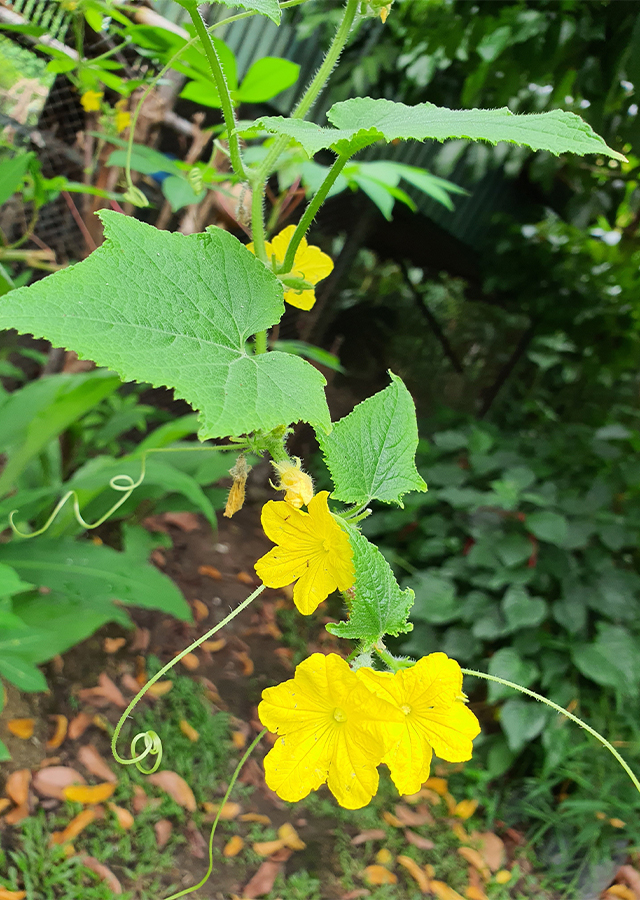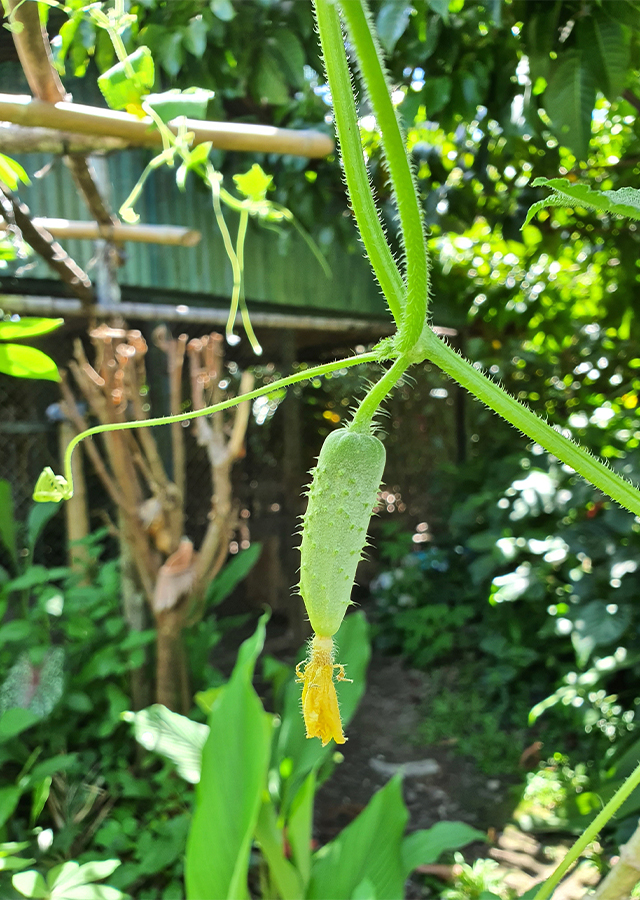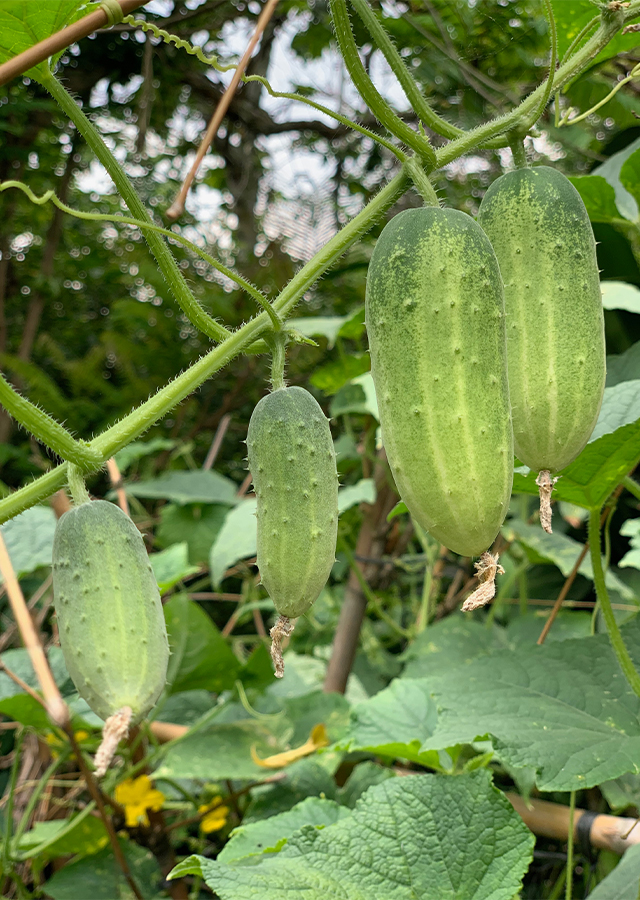Traditional Herbs from Cucumis sativus
acne
- Thinly slice 1 cucumber crosswise.
- Place the cucumber and rub it on the area with acne, let it sit until it dries, rinse with warm water.
- Do it 2 times a day."] ,"high_blood_pressure
- Wash 2 fresh cucumbers and then grate them.
- Squeeze and strain the grated results then drink all at once.
- Repeat 2-3 times a day.
What is Cucumis sativus Looks like??



Parts of Cucumis sativus that could be used
- Leaves
- Seeds
- Flowers
- Fruit
- Roots
Cucumis sativus Distribution
Cucumbers come from Asia, precisely at the foot of the Himalayas. In India, cucumbers have been cultivated since 3000 years ago. Spread to Egypt, Greece and the Roman empire, it has now been cultivated throughout the world. Usually used as vegetables or fresh vegetables and the juice is used as a facial care ingredient. Cucumbers also have properties as traditional medicine.
Agroecology of Cucumis sativus
This plant can grow in temperate to tropical climates at altitudes of up to 2,000 m above sea level, annual air temperature of 18-32 °C, with rainfall of 1,000-1,200 mm/year, and soil pH of 6-7.5. Likes full sun, fertile soil, rich in organic matter and well-drained.
Morphology of Cucumis sativus
- Tap root with root hairs.
- Climbing stem, coarse hairs, green color, has spiral tendrils.
- Heart-shaped leaves, wide, tapered tip, fine hairs, serrated leaf edges.
- Flowers trumpet-shaped, yellow, has 5 petals, hermaphrodite.
- Fruit is green, cylindrical, 12-25 cm long, 2-5 cm in diameter. The surface of the fruit has small and sharp spines, the flesh is pale yellow. has many seeds.
- White seeds, flat and oval in shape.
Cultivation of Cucumis sativus
- Generative propagation (seeds).
- Seed seeding is done 2 weeks before planting.
- Planting distance 30 x 60 cm.
Cucumis sativus, more details :
Chemical Content of Cucumis sativus
Alkaloids, flavonoids, glycosides, phytosterols, saponins, triterpenoids, steroids, tannins, ß-carotene, polyphenols, lycopene, shikimate dehydrogenase (3-dehydroquinate dehydratase).
Benefits of Cucumis sativus
Removes toxins from the body, lowers high blood pressure, reduces weight, maintains healthy kidneys and bones, inhibits the development of cancer cells, relieves sore throat, worm medicine, cares for facial health.
Simplisia of Cucumis sativus
Information not yet available.
Another Facts for Cucumis sativus :
Synonym of Cucumis sativus
Cucumis esculentus Salisb., Cucumis hardwickii Royle, Cucumis muricatus Willd.
Habitus of Cucumis sativus
Creepers. Annual vines, reaching 5 m in length
Habitat of Cucumis sativus



No comments:
Post a Comment